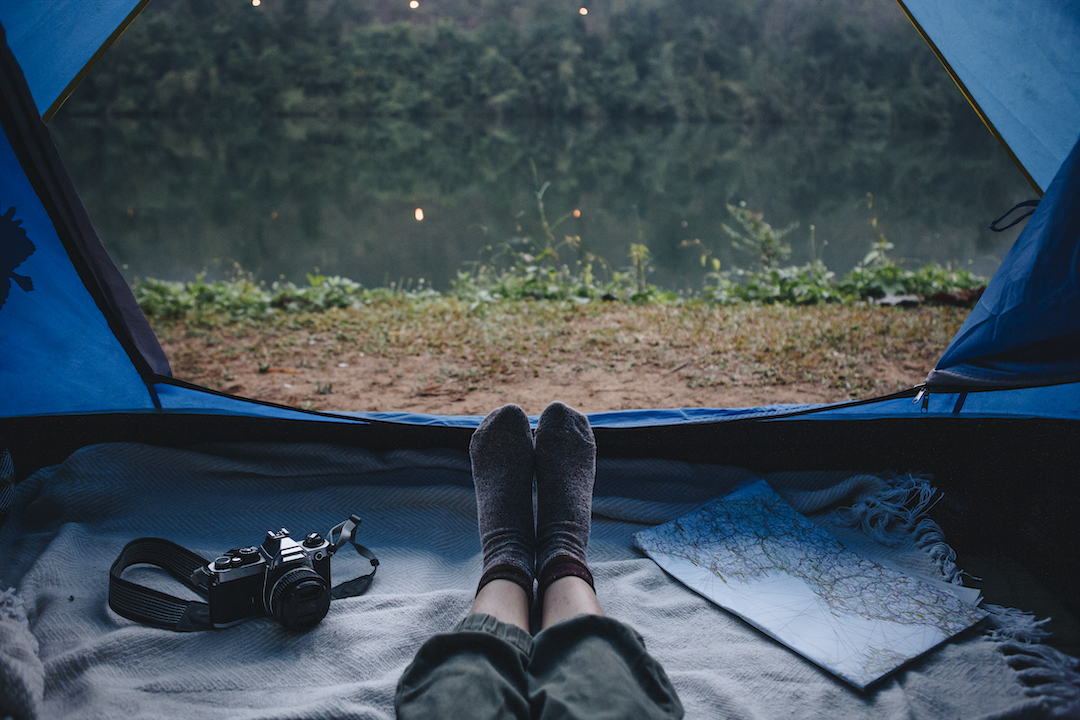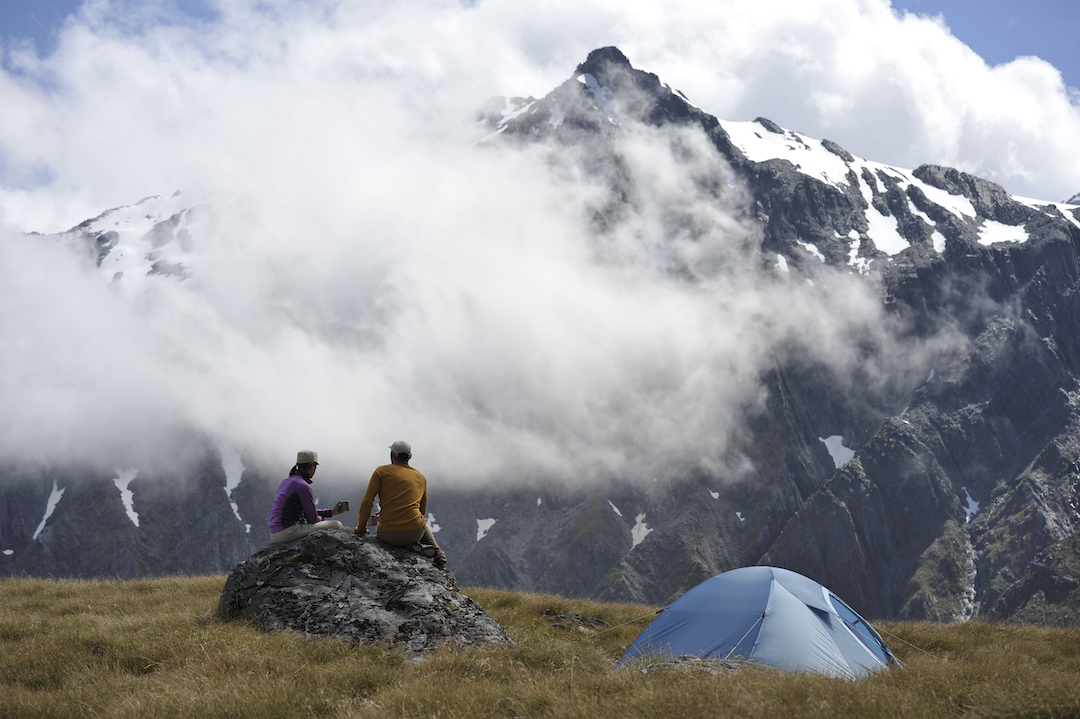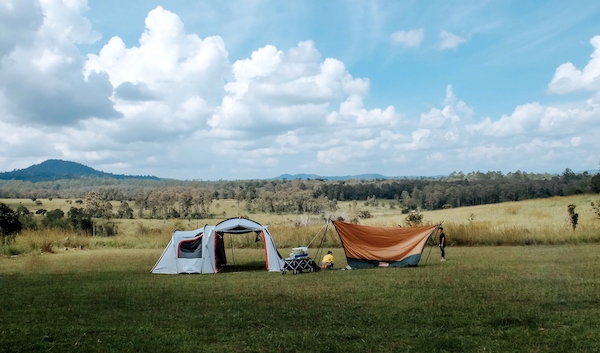In today’s world, many of us are constantly connected to technology and find it difficult to take a break from the constant stimulation of modern life. This can have negative effects on our mental health, leading to increased stress and anxiety. Fortunately, there is a simple solution: spending time in nature. Camping provides a unique opportunity to disconnect from technology and immerse oneself in nature, which has been shown to have a variety of mental health benefits.
In this guide, we will explore the many ways in which camping can improve mental health and well-being. We will discuss the negative effects of constant technology use on mental health, the benefits of being in nature for mental health, the physical health benefits of camping, the social benefits of camping, and how to overcome the challenges of camping. By the end of this guide, you will have a better understanding of how camping can improve mental health and well-being, and how to plan a camping trip that will help you disconnect and reconnect with nature.
Disconnecting from Technology
In today’s fast-paced world, it can be difficult to disconnect from technology and take a break from the constant stimulation of modern life. However, studies have shown that constant technology use is linked to increased levels of stress and anxiety, which can have negative effects on mental health. This is where camping comes in. By disconnecting from technology and immersing oneself in nature, camping provides a unique opportunity to improve mental health and well-being.
Being in nature has been shown to have a positive effect on mental health, reducing stress and anxiety, improving mood, and promoting relaxation. In fact, research has found that spending time in nature can lead to a significant reduction in cortisol, a hormone associated with stress. To fully disconnect from technology, it’s important to set boundaries and make a conscious effort to enjoy the outdoors. This can involve turning off your phone, avoiding laptops and other electronic devices, and engaging in outdoor activities such as hiking or fishing. By immersing oneself in nature and taking the time to appreciate its beauty, one can fully appreciate the benefits of disconnecting from technology and reconnecting with the natural world.

Connecting with Nature
Spending time in nature has numerous mental health benefits. It can reduce stress and anxiety, improve mood, and increase mental clarity. Engaging in mindful practices, such as “forest bathing,” can help individuals connect with nature in a deeper way and experience even greater mental health benefits. This involves slowing down and using all of one’s senses to appreciate the beauty of the natural world.
There are many outdoor activities that can promote relaxation and well-being. These include hiking, fishing, birdwatching, or simply sitting quietly and observing one’s surroundings. If you are with kids, Party equipment rental is a great way to have fun and take in the great outdoors.
Engaging in physical activity in nature can have additional physical health benefits, such as improved cardiovascular health and better sleep. The key is to find activities that are enjoyable and restorative, allowing one to fully connect with nature and reap the many mental health benefits that it has to offer. By connecting with nature, individuals can improve their overall well-being and experience a greater sense of peace and contentment.
Physical Health Benefits of Camping

Camping not only provides a break from technology and a chance to connect with nature, but it also offers many physical health benefits. For instance, camping can help improve sleep quality, as the natural light and fresh air can help regulate the body’s circadian rhythm. Additionally, camping often involves physical activity, such as hiking or swimming, which can help improve cardiovascular health and increase overall fitness levels.
These physical health benefits can also contribute to improved mental health. Physical activity has been shown to reduce stress, anxiety, and depression while improving mood and overall cognitive function. Regular exercise helps release endorphins, which are natural mood boosters that can help individuals feel happier and more relaxed. Improved sleep quality can also have a positive effect on mental health, as getting enough restful sleep can help reduce symptoms of depression and anxiety. Furthermore, breathing in the fresh air can improve cognitive function and increase feelings of well-being.
Social Benefits of Camping
Camping offers not just an opportunity to disconnect from technology and connect with nature but also provides social benefits. When you camp with friends or family, it can strengthen bonds by offering shared experiences. Additionally, it is a chance to meet like-minded people and build new social connections based on similar interests and values. The social support gained from camping can help individuals cope with stress, improve their resilience, and reduce the risk of depression and anxiety. Spending time with friends or family in outdoor activities can strengthen relationships and build a sense of community, which in turn can provide a greater sense of purpose and meaning in life for campers.
Overcoming Challenges
Camping can present various challenges, such as inclement weather or unfamiliar environments. However, with some preparation and a positive mindset, it’s possible to overcome these obstacles and fully enjoy the camping experience. One common challenge of camping is dealing with unexpected weather conditions, such as rain or high winds. To prepare for inclement weather, campers should pack appropriate gear, such as waterproof tents, tarps, or warm clothing. It’s also important to have a backup plan in case of sudden weather changes. For example, if it starts to rain, campers can seek shelter in their car or a nearby building until the weather improves.
Another challenge of camping is adjusting to unfamiliar environments. Being in an unfamiliar place can be disorienting and make it difficult to feel comfortable. To overcome this challenge, campers should familiarize themselves with the camping area and set up camp in a way that feels safe and secure. It’s also important to be mindful of surroundings and take precautions, such as storing food properly to prevent encounters with wildlife. By being prepared and maintaining a positive attitude, campers can fully enjoy the camping experience and reap the many mental and physical health benefits it provides.
Camping provides a unique opportunity to improve mental health and overall well-being. By disconnecting from technology and immersing oneself in nature, individuals can experience a sense of peace and relaxation. The physical health benefits of camping, such as improved sleep and increased physical activity, can contribute to improved mental health. Social connections and a sense of community are also important for mental health and well-being, and camping provides opportunities to build and strengthen relationships with others. Overall, camping is an excellent way to improve one’s mental and physical health while enjoying the beauty of the natural world.

